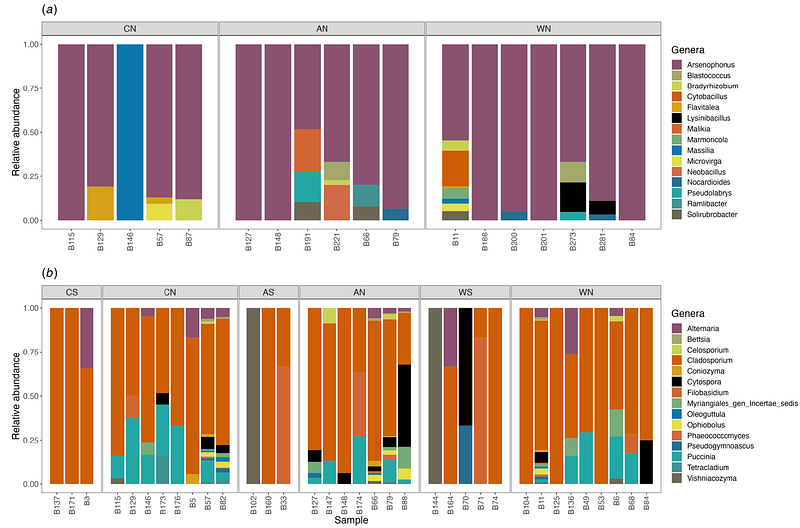Bee microbiomes in a changing climate: investigating the effects of temperature on solitary bee life history and health

Bee microbiomes in a changing climate: investigating the effects of temperature on solitary bee life history and health
Crowley, B. L.; Schaeffer, R. N.
AbstractClimate change is rapidly warming thermal environments, an important abiotic stimulus governing bee development and species interactions. Increasing evidence suggests that solitary bees rely upon pollen provision microbes for successful development. The effects of heat stress on provision microbiota and resulting consequences for larval health and development, however, remain to be examined. We performed an in vitro study to investigate the effects of thermal environment on provision microbiome composition and measured fitness outcomes for Osmia lignaria larvae. Elevated temperatures moderately increased the mean rank relative abundance of Arsenophonus, a putative son-killing symbiont. While pollen sterilization removed Arsenophonus from microbe-rich provisions, larval survivorship did not significantly differ between bees reared on microbe-rich and sterile diets. In contrast to previous research in solitary bees, larvae reared on sterile provisions weighed more and had higher total fat contents, with temperature moderating the degree of difference. As anticipated, we observed a negative relationship between the duration of larval development and temperature. Our results indicated that an intact provision microbiota may not always improve bee fitness, and that bee-microbe interactions during larval development may contribute to the size-shrinking effect observed for cavity-nesting bees under warming conditions.


